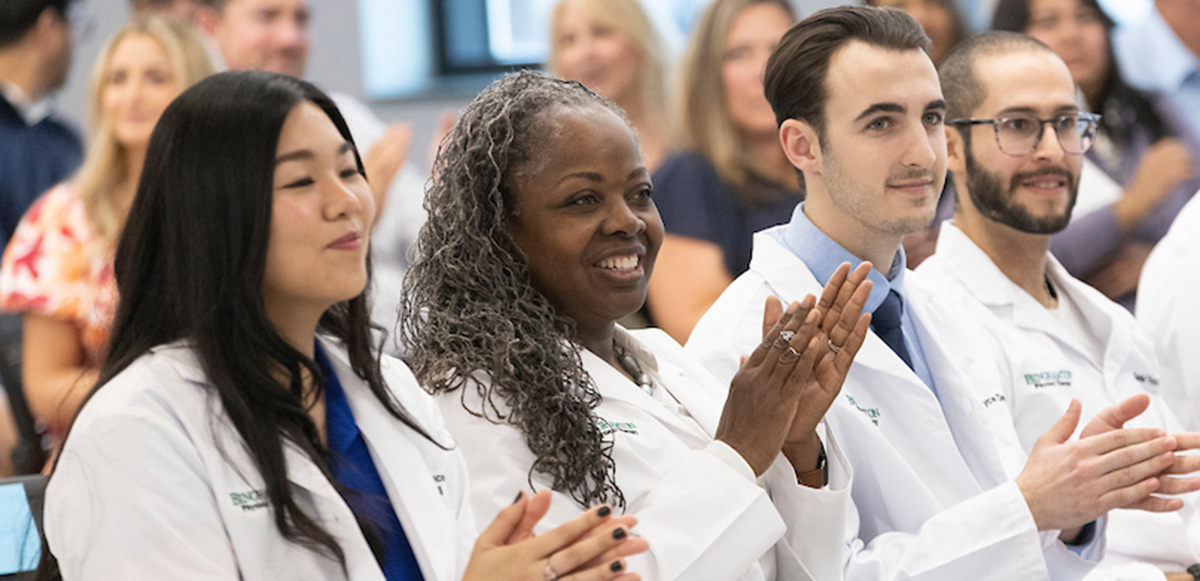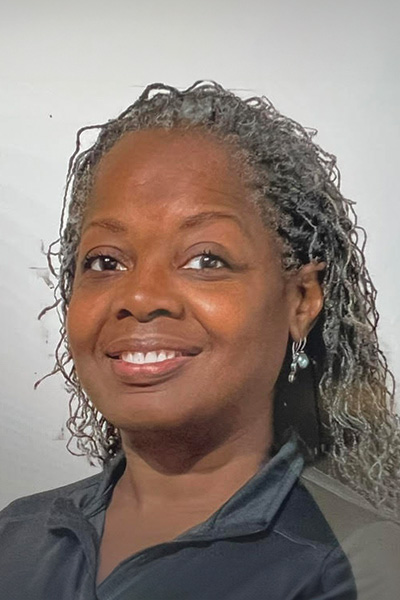Everything has a first step. For Iris Costner, becoming a physical therapist proved a unique journey
Student in Binghamton's first PT cohort is realizing her lifelong dream

Iris Costner earned a master’s degree in adult education, got married and raised three children. But she never forgot her first dream: to heal people through physical therapy.
In 2017, Costner earned an additional degree from Villa Maria College to become a licensed physical therapy assistant. Still, she wanted more.
She decided to pursue a doctoral degree in physical therapy, and even though it meant commuting from Buffalo to Binghamton, N.Y., Costner entered the inaugural Doctor of Physical Therapy (DPT) class at Binghamton University’s Decker College of Nursing and Health Sciences. In May, she earned her white coat — signifying her transition from classroom (didactic) learning to clinical learning in the field.
“I thought maybe I waited too long,” says Costner, who will graduate with her cohort in 2026. “But then I got accepted to Binghamton University. It rekindled that opportunity to help people take better care of their bodies.”
Costner is attracted to the autonomy that physical therapy gives patients: “What drew me to physical therapy was the empowerment that it offers. We have individuals learn the exercise, have them execute it correctly in front of you and then enable them to take that home as part of their home exercise program,” she says. “You really develop a patient alliance.”
Costner is also determined to show people that nontraditional paths are possible. She spearheaded the Adopt Schools Program with Buffalo Public Schools, which brings awareness to STEM careers that are typically underrepresented by minorities.
A 2019 American Physical Therapy Association report indicates only 2.5% of physical therapists are Black.
There’s more than one path to success
“My trajectory illustrates to other people that there are a variety of ways you can enter the fields of health and sciences successfully,” Costner says. “We’re trying to show young people that there are jobs where it’s OK to be a little nerdy.”
Unlike her parents, who moved from the rural South for better opportunities and didn’t have the experience to help her on the path — or the counselor who suggested she try secretarial work — Costner aims to support and provide learners with the resources needed to reach their goals, as the advisor she never had.
Costner believes her experiences as a mother and nontraditional student will make her a better practitioner. She also hopes to advocate for the underserved.
“When you have a patient walk through the door and they don’t see anyone who looks like them, it’s not just ‘white coat apprehension,’” she says. “It’s a challenge, when you’re underrepresented, to reach out and get help for a condition when you know no one looks like you in that space.”
With each step, Costner is not only realizing her dream but working to open doors. She urges students to pursue their aspirations despite adversity.
“Don’t presume that because something doesn’t go straight for you, it won’t work out. It is hard work, but it is so worth it. Negate that voice that tells you that you can’t,” Costner says. “Everything has a first step. Just start the process. Invest in yourself and pursue the career you love!”

